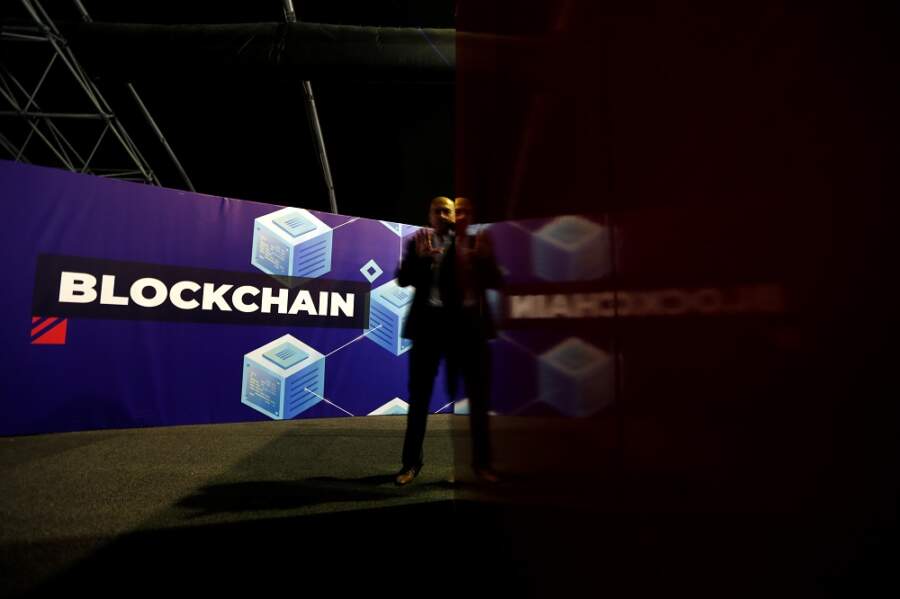

By DJ Qian, CEO & Founder of Chainge Finance
From time to time, the investment landscape is invariably reshaped by a multitude of factors like market forces, regulations and global socio-economic changes. Particularly in this era of digital transformation, the growth of artificial intelligence, machine learning and passive investment vehicles offers compelling opportunities for investors looking to diversify. This also means that assets no longer can be looked at unidimensionally.
A holistic approach calls for more flexible finance to effectively curate diversification strategies- not only to manage portfolio risk but also to make the most out of the burgeoning smart investment opportunities we are presented with. It is in fact impossible to talk about today’s transaction ecosystem without diving into a transformative force at the heart of this paradigm shift- the blockchain technology.
In popular culture, blockchain is mostly spoken about in the context of cryptocurrencies or NFTs and could seem complex and overwhelming at times. Having said that, how the blockchain works is not necessarily complicated. Individual blocks of data, each containing a record of information, are linked together in chronological order and manage transactions of information by securing them as they occur. What makes this network secure and transparent is the fact that these links cannot be changed. Fundamentally, the purpose of blockchain is to reduce the costs and friction of transactions and at the same time make processes faster and efficient. The scope of this revolutionary technology, however, is not limited to any one area of operation.
Above and beyond flexibility, blockchain technology also simplifies whole processes in a variety of business operations. It offers businesses a secure way to share valuable data without the involvement of a third party. Blockchains are immutable, which means that stored data cannot be modified or deleted, and it’s at the discretion of the business how much of it and with whom they want to share it. This security is reinforced by timestamps- every transaction on the blockchain is left with a timestamp that cannot be modified, further enhancing security. Additionally, being stored on a network of computers also makes the data less vulnerable to hacking. Any potential loopholes caused by negligence or oversight are nullified by the blockchain’s cryptographic algorithms, thereby preventing consequential mishaps in proceedings. Moreover, the synergy of blockchain technology and machine learning can effectively monitor and manage risks with higher degrees of precision than is possible when done traditionally.
Automation and speed are merits of blockchain technology that have wide-ranging applications in everyday life, ranging from the mundane to the exceptional. For instance, often tedious and repetitive manual financial operations such as payrolls can be automated and executed without the need for human involvement, which in turn helps cut down costs significantly. On the other hand, tokenization, the process by which the value of a digital or physical asset is converted into a token that is then recorded on the blockchain to be shared or traded afterwards – is already widely being applied to digital art. Having said that, its immense potential can be truly realized only once it enjoys a similar scale of application in physical assets.
It would be interesting to look at the case of enforceable smart contracts that can fully replace a variety of traditional contracts with an added advantage of providing 100% security for both parties involved. This can be attributed to the code behind the smart contract that “forces” the transaction to take place once all the contractual conditions are met. This helps eliminate any apprehensions about not receiving what you paid for or not being paid your due, irrespective of whether you are dealing with services, commercial goods or digital assets. Decentralized escrow smart contracts offered by Chainge Finance are a relevant example of this disruptive innovation. Apart from streamlining transactions, blockchain technology proves extremely useful especially while facilitating international operations, where in some cases geographical restrictions could even turn typically simple transactions into legal and financial nightmares.
Even as blockchain remains a sensitive topic in many domains mainly due to regulatory uncertainties and volatile market situations, there is a lot it can achieve with judicious application. Decentralization, in particular, is a powerful tool to fight corporate corruption. With blockchain technology ensuring data transparency and financial processes being automated and out in the open, there is little to no room left for malpractices to ensue. This level of transparency and traceability is not restricted to financial operations but can also be applied to a variety of other areas like wholesale merchandise. What’s more, in contemporary settings, something as relevant as vaccines or medicines in general, a category challenged by counterfeit or contaminated versions, could be effortlessly tracked to ensure their authenticity.
The applications listed above are by no means exhaustive and could go on forever, since the opportunities offered by blockchain technology can virtually branch out and benefit almost every aspect of our lives. At the same time, businesses, irrespective of their field of operation and the level of complexity will be privy to simplified and accelerated operations and will be in a better position to pass on convenience and cost benefits to their consumers.


